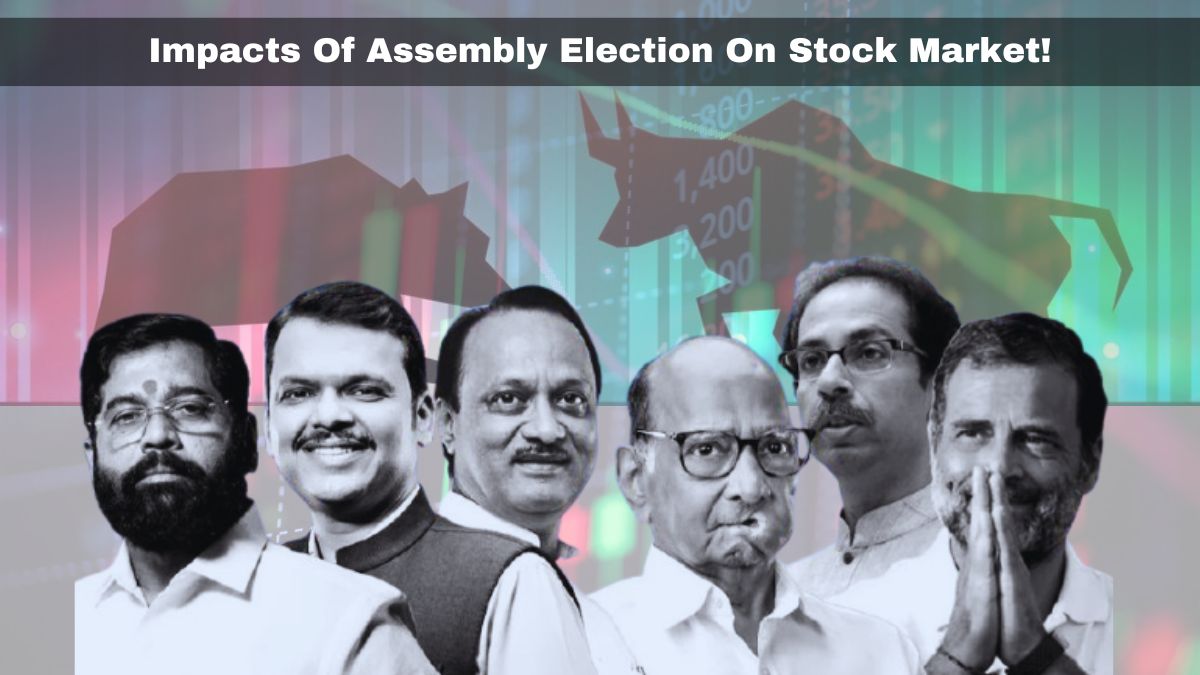The Maharashtra Assembly Elections are a significant event in India’s democratic landscape, influencing various sectors, including the economy and the stock market. As the elections unfold and the stock market remains closed, investors and market enthusiasts are keen to understand the potential ramifications of the electoral outcomes. This article delves into expert opinions and analyses regarding the anticipated effects of the Maharashtra Assembly Elections on the stock market.
Minimal Market Impact Anticipated
Despite the inherent uncertainties surrounding elections, experts suggest that investors need not be overly concerned about drastic market fluctuations. Many analysts predict that the stock market will experience minimal effects from the assembly elections. This sentiment is rooted in the belief that the market has already factored in the potential outcomes, and any immediate reactions will likely be short-lived.
The Aftermath of the Elections
The political landscape in Maharashtra is characterized by a close contest between the Bharatiya Janata Party (BJP) and the Congress-led alliances. Should the BJP-led alliance retain power, it is expected that the existing policies will continue, with possible improvements aimed at enhancing infrastructure and capital expenditure. Conversely, a Congress-led alliance victory could lead to a significant policy overhaul, focusing on rural welfare and potentially slowing down some infrastructure projects.
Analysts are closely monitoring policy announcements, as any changes could influence investor sentiment and lead to temporary market fluctuations. The direction of these policies will be crucial in determining the market’s response in the aftermath of the elections.
Insights from Experts
Impact on Maharashtra-Based Firms
According to a report by Business Standard, the outcome of the elections could have direct implications for Maharashtra-based firms and, by extension, the stock market. Analysts from Macquarie, including Suresh Ganapathy, Aditya Suresh, and Punit Bahlani, highlighted concerns that a government led by the Maha Vikas Aghadi (MVA) might prioritize infrastructure projects less than the BJP-led alliance. They emphasized the importance of tracking major projects in the state and their implications for companies involved in their execution.
Investor Confidence and Market Expansion
Vishnu Kant Upadhyay, assistant vice-president for research and advisory at Master Capital Services, noted that market expansion is contingent upon a clear mandate for a business-friendly government. Such a government would likely boost investor confidence and attract investments, which are vital for economic growth.
Technical Analysis of Market Trends
From a technical perspective, Osho Krishnan, senior analyst for technical and derivatives research at Angel One, identified key resistance and support levels for the Nifty index. He indicated that 23,650-23,700 serves as a strong resistance level, while 23,400-23,350 could act as an intermediate support level. A breach of these levels could lead to further downward corrections, emphasizing the importance of monitoring market trends closely.
Cautious Market Reactions
Market experts, including Narendra Solanki, head of fundamental research at Anand Rathi Shares and Stock Brokers, expressed that the market may react cautiously as it awaits clarity on the new government’s policy stance. This period of indecision could persist until the new administration establishes its priorities and policy direction.
Arpit Jain, Joint MD of Arihant Capital, added that potential sell-offs could occur if the BJP-led alliance falters in key states like Maharashtra. However, he advised investors to focus on long-term strategies rather than solely reacting to state election outcomes.
Conclusion: A Wait-and-Watch Approach
As the Maharashtra Assembly Elections unfold, the stock market’s response remains a topic of keen interest. While experts anticipate minimal long-term impacts, the immediate aftermath will depend on the clarity of policy directions from the newly elected government. Investors are encouraged to adopt a disciplined approach, gradually building positions while remaining vigilant about market trends.
In the coming weeks, as the political landscape becomes clearer, market participants will be better positioned to navigate the potential impacts of the elections on their investment strategies. For now, the consensus is to wait and watch as the situation develops.
Written By: Aishwarya Samant




